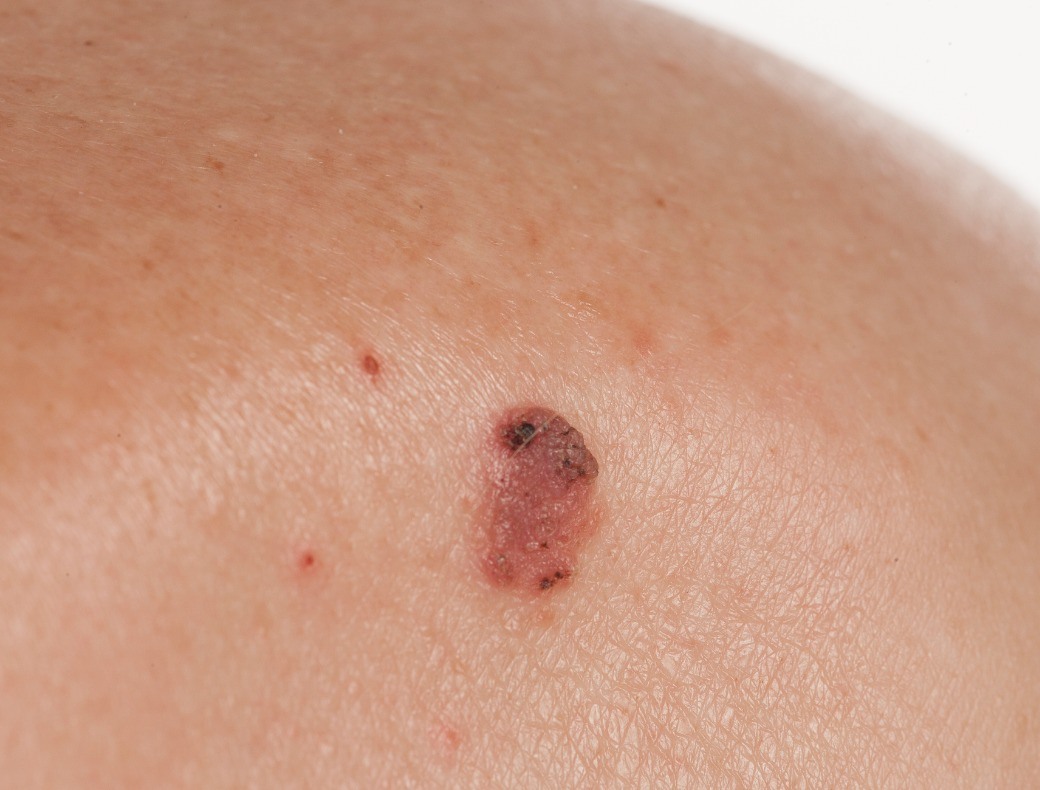
Squamous Cell cancers usually grow more rapidly, and the lesions are typically crusty and tender. Most SCCs are found on sun-exposed sites, particularly the face, lips, ears, hands, forearms and lower legs. They vary in size from a few millimetres to several centimetres in diameter. It is not possible to accurately predict which of these benign lesions will turn into SCC’s but thickening lesions and those which are tender to touch, are more concerning.
There are a variety of treatment options for these pre-cancers, which can prevent them turning into invasive SCCs. Invasive SCCs can cause local tissue destruction (like BCCs) but they can also metastasise. However SCC is nearly always treated surgically, in most cases being excised with a 3-10mm margin of normal tissue around the visible tumour. A flap or skin graft may be needed to repair the defect. Thousands of New Zealanders are treated for SCC each year, and more than 100 die from their disease.
Compared to other forms of cancer, these types of skin cancer can be recognised in their early stages and are therefore easily cured. The key warning signs are a new growth, a spot or bump that’s getting larger over time, or a sore that doesn’t heel in a few weeks. Both types enlarge from the point where they first occur and usually don’t spread to distant parts of the body.
The cause of skin cancer, like other forms of cancer, is not completely known. Excessive exposure to sunlight is the single most important factor associated with the development of skin cancers. Consequently, skin cancers most commonly develop on the face and the arms, the most sun-exposed parts of the body.
If you’re diagnosed with skin cancer, your treatment options depend on several factors including the location of the cancer, its size and previous therapies used. At Skin Institute, you’ll find both simple and advanced skin cancer treatment and management, with specialty surgeries for prominent areas like the face.
Mohs micrographic or PDEMA surgery is the best method of removing skin cancer and ensuring that the skin cancer is completely excised at the time of procedure. Mohs micrographic/PDEMA surgery has the highest cure rates for skin cancer (up to 99% when compared with other treatments for skin cancer***) and optimises the end cosmetic result.
At Skin Institute, we understand that skin cancer can be an intimidating diagnosis to come to terms with. Our expert team of qualified specialists are trained in the management of skin cancer, offering everything from assessment to post-treatment care.
Whether you just want peace of mind about your skin health, or you’re concerned about a specific mole or lesion, our team of skin cancer specialists will provide you with expert care – your partner along the way to skin health. We’ve treated over 20,000 patients with skin cancer over the last ten years, so we know just how common skin cancer is. If you do find yourself with a form of skin cancer, you’re definitely not alone.
If you have just one mole or lesion that seems concerning, you can book a Spot check to have it assessed.
Alternatively, you can book a full body skin cancer consultation with one of our Nurse Dermoscopists or Skin Cancer Doctors for a top to toe assessment.

At Skin Institute, we accept cash, Eftpos or credit cards. There are also easy ways to spread your payments with QCard or Afterpay.